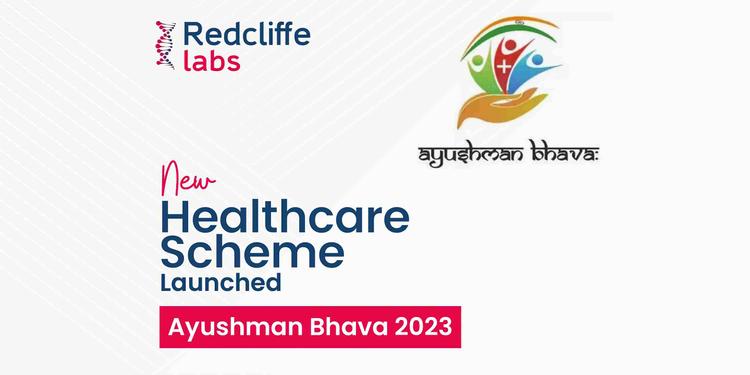136 Million Indians are at High Risk of Diabetes: Here’s How You Can Prevent It

Medically Reviewed By
Dr. Ragiinii Sharma
Written By Ritish Sharma
on Jun 29, 2023
Last Edit Made By Ritish Sharma
on Mar 16, 2024

Diabetes is a chronic disorder and has become a growing concern in India. According to a recent study conducted by ICMR, it is estimated that 136 million people are at high risk of developing diabetes in India alone.
The figure is more than the population of Maharashtra, or 15.3% of the country's entire population that is likely to be pre-diabetic.
This alarming statistic highlights the urgent need for awareness and preventive measures to combat this chronic disease. But fear not, as we are here to provide you with valuable information and practical tips on how to prevent diabetes and lead a healthier lifestyle.
Why Is Diabetes Becoming a Growing Concern?
Diabetes is a condition characterized by high blood sugar levels resulting from the body's inability to produce or effectively use insulin.
There are different types of diabetes, including Type 1, Type 2, and gestational diabetes.
Type 1 Diabetes
Type 1 diabetes occurs when the immune system mistakenly attacks the cells in the pancreas responsible for producing insulin.
Type 2 Diabetes
Type 2 diabetes is primarily caused by lifestyle factors, such as obesity, sedentary habits, and poor diet choices.
Gestational Diabetes
Gestational diabetes develops during pregnancy and usually resolves after childbirth.
Several factors contribute to the development of diabetes. While genetics can play a role, lifestyle choices and environmental factors have a significant impact.
Being overweight or obese, having a sedentary lifestyle, consuming a diet high in processed foods and sugary beverages, and smoking are all risk factors associated with diabetes.
Certain medical conditions such as high blood pressure, high cholesterol, and polycystic ovary syndrome (PCOS) can increase the risk of developing diabetes.
Signs of Diabetes or Prediabetes
- Increased thirst
- Frequent urination
- Unexplained weight loss or gain
- Blurred vision
- Increased hunger
- Fatigue or weakness
- Numbness or tingling
- Slow wound healing
- Sexual dysfunction
The consequences of diabetes extend beyond high blood sugar levels. This condition can have a profound impact on overall health and well-being. Uncontrolled diabetes can lead to complications affecting various organs and systems in the body.
Chronic high blood sugar levels can damage blood vessels, nerves, and vital organs like the heart, kidneys, eyes, and feet. It can increase the risk of cardiovascular diseases, kidney failure, blindness, and lower limb amputations.
With such a staggering number of Indians at high risk of diabetes, it is crucial to raise awareness about preventive measures.
Factors Contributing to the High Risk of Diabetes in India
- Lack of physical activity and a shift towards sedentary jobs
- Unhealthy diet
- Rising obesity rates in India
- Certain genetic factors
- Rapid urbanization in India has led to changes in lifestyle and eating patterns
- Limited access to healthcare
- Prevalence of gestational diabetes during pregnancy
- Limited knowledge about diabetes, its risk factors, and preventive measures
- Traditional celebrations and festivals involving the consumption of high-calorie foods and sweets
- Inadequate healthcare facilities, especially in rural areas
Prevention Strategies
By incorporating the following comprehensive prevention strategies into your daily life, you can take proactive steps to reduce the risk of diabetes and promote optimal health.
1. Healthy Eating Habits and a Balanced Diet
Adopting healthy eating habits and maintaining a balanced diet is crucial for preventing diabetes. Emphasize whole grains, fruits, vegetables, lean proteins, and healthy fats while limiting processed foods, sugary snacks, and beverages. Mindful eating can help regulate blood sugar levels and maintain a healthy weight.
Related Post - Top 5 Best & Worst Diet Choices For Diabetes Patients - MyHealth
2. Regular Physical Activity and Exercise
Engaging in regular physical activity and exercise is crucial for diabetes prevention. Moderate-intensity aerobic exercise, such as brisk walking, swimming, or cycling, per week. Alongside aerobic exercises, incorporate strength training exercises to build muscle and improve insulin sensitivity.
Regular physical activity not only helps with weight management but also enhances glucose utilization by the body, reducing the risk of developing diabetes.
Here's how you can stay active and healthy, even with a jam-packed work schedule!
How to Stay Active with Diabetes During a Busy Workday - MyHealth
3. Weight Management and Maintaining a Healthy BMI
Maintaining a healthy body weight and body mass index (BMI) is a significant factor in diabetes prevention. Excess weight, particularly around the waistline, increases the risk of developing insulin resistance and Type 2 diabetes.
Focus on achieving and maintaining a healthy weight through a combination of healthy eating and regular exercise.
Even modest weight loss can have a profound impact on reducing the risk of diabetes and improving overall health.
4. Stress Management and Adequate Sleep
Chronic stress and lack of sleep can impact insulin sensitivity and increase the risk of developing diabetes. Incorporate stress management techniques, such as meditation, deep breathing exercises, or engaging in hobbies and activities you enjoy, to reduce stress levels.
Prioritize getting 7-8 hours of quality sleep to support your body's overall health and well-being. Adequate rest and effective stress management are essential components of a diabetes prevention plan.
5. Regular Health Screenings and Check-ups
Regular health screenings and check-ups are vital in identifying and managing diabetes risk factors. Early diagnosis for diabetes-related complications, such as eye exams, kidney function tests, Liver function tests, Lipid profiles, etc. is essential to monitor blood glucose levels, blood pressure, and cholesterol levels.
Worried about which diagnostic test should you take for diabetes? Understanding The Different Blood Tests for Diabetes - MyHealth
Takeaway
With 136 million Indians at high risk of diabetes, it is crucial to prioritize preventive measures and take control of our health. The key to combating this epidemic lies in early diagnosis and regular screening, allowing for timely intervention and effective management.
As part of this preventive strategy, we highly recommend considering Diabetes Profile- Essential test at Redcliffe Labs. This comprehensive test, including 61 crucial tests such as BSF, HbA1c, Lipid Profile, LFT, KFT, Thyroid Profile Total, and Urine Routine, empowers individuals to monitor and mitigate their risk of diabetes.
Remember, prevention is always better than cure, and by taking charge of our health today, we can build a healthier future for ourselves and our loved ones.



